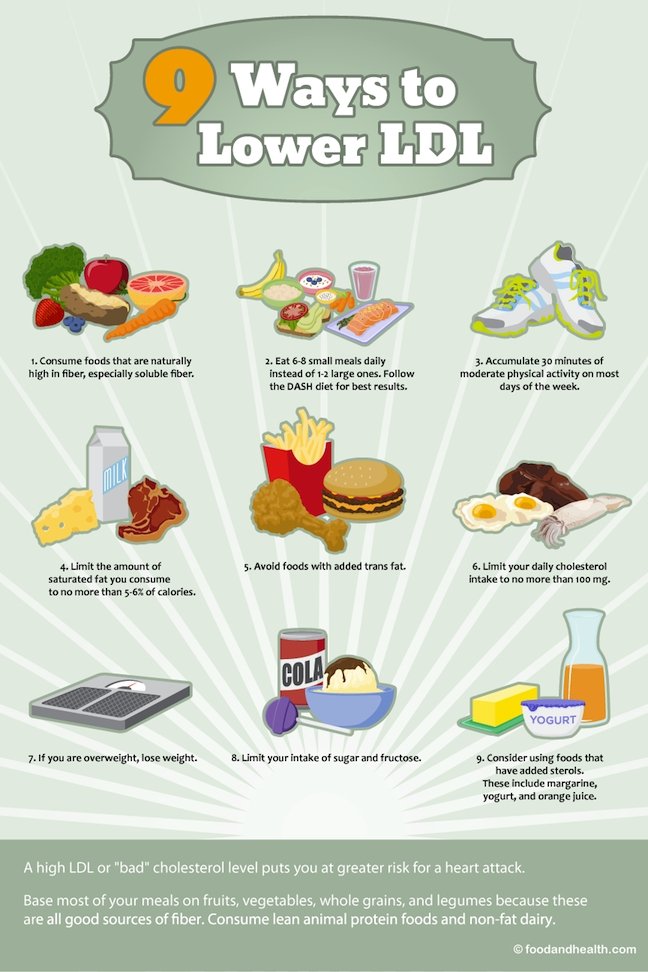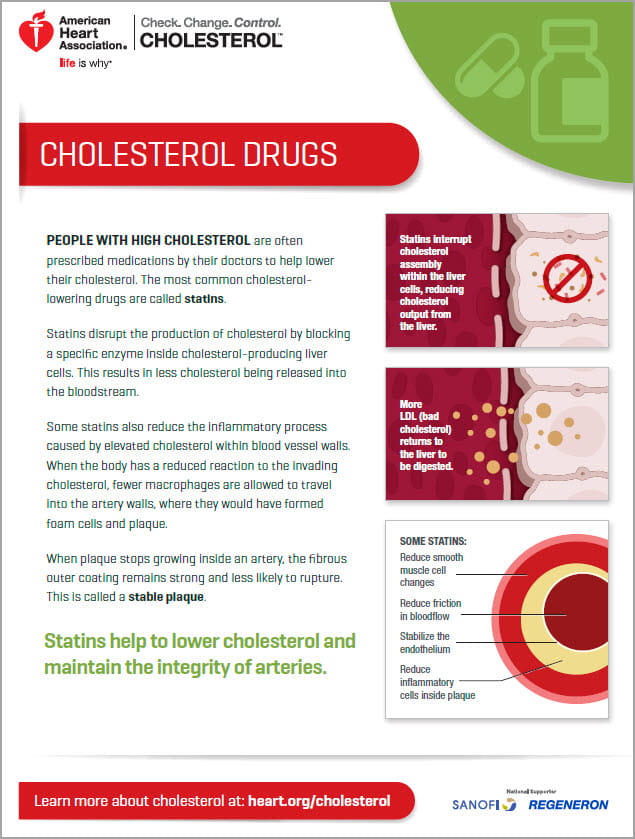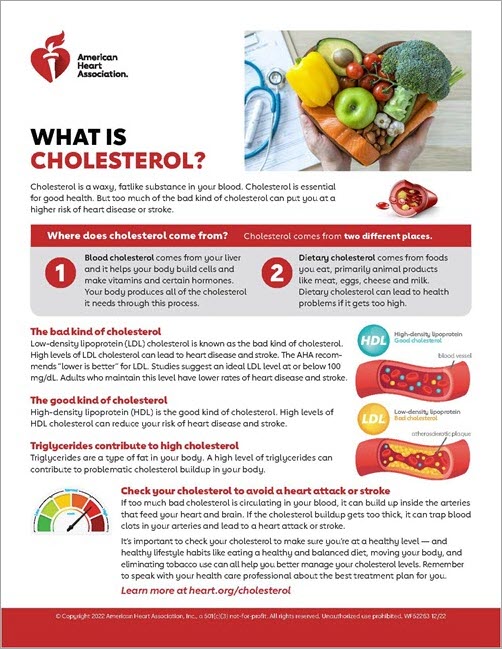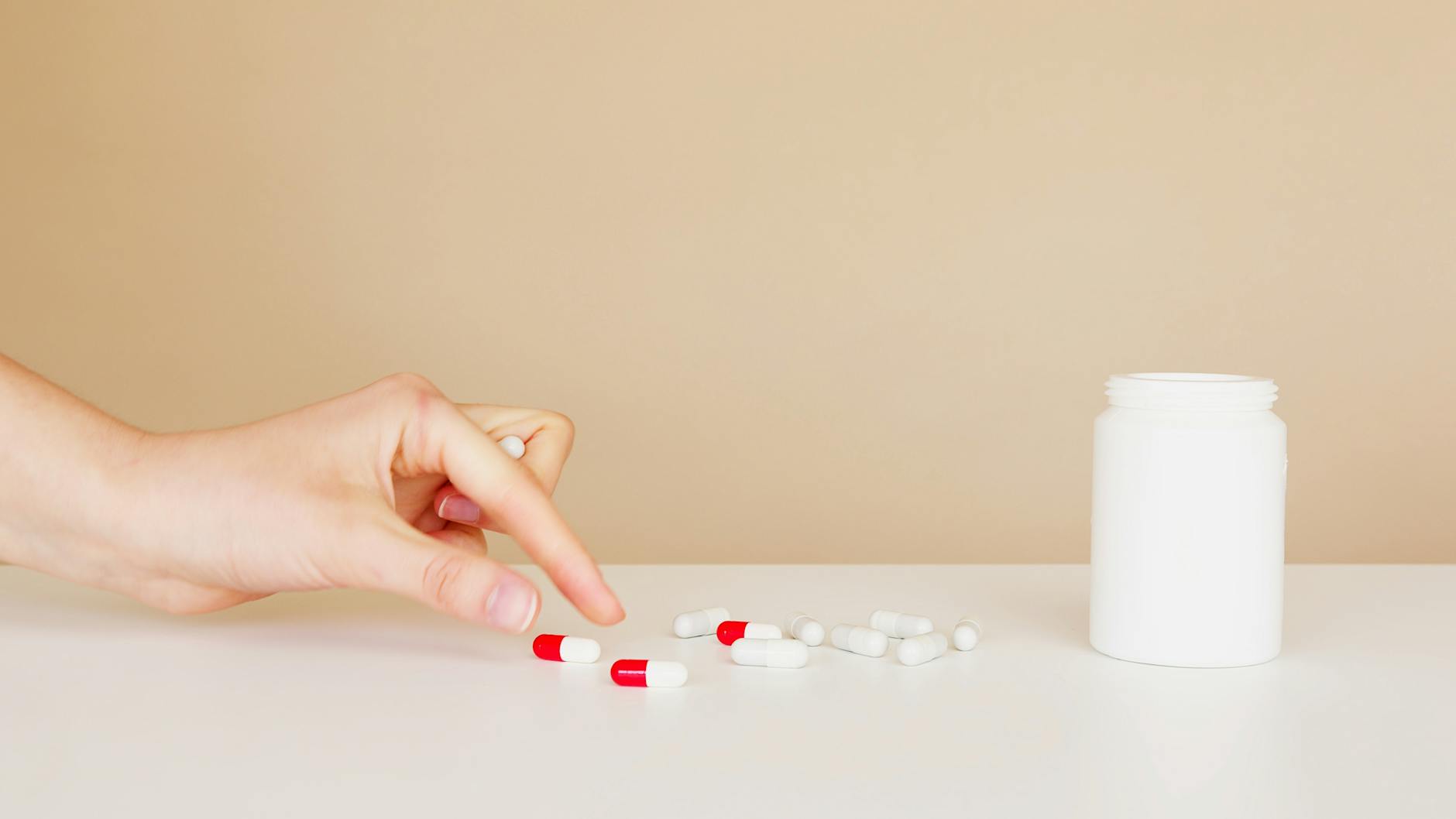Unlock the secrets to managing LDL cholesterol with these 10 key steps – your heart will thank you later!
Table of Contents
Introduction: The Cholesterol Story
Do you know what cholesterol is and why it’s essential to keep our levels in check? Let’s find out more about the cholesterol story, especially focusing on managing LDL (bad) cholesterol levels.
What is Cholesterol?
Cholesterol is like a waxy helper that flows through our blood. Our bodies need it to build strong cells and keep everything running smoothly. But here’s the catch – having too much of it can cause some trouble.
LDL vs. HDL Cholesterol
Now, let’s talk about LDL and HDL cholesterol – two key players in the cholesterol game. LDL is the ‘bad’ guy, sort of like a troublemaker that can clog up our arteries. On the other hand, HDL is the ‘good’ one that swoops in like a superhero to help clean up the mess.
Understanding LDL Cholesterol and Your Body
The Effects of High LDL Cholesterol
When we talk about LDL cholesterol, we’re referring to the “bad” type of cholesterol that can be harmful to our bodies. When there’s too much LDL cholesterol in our blood, it can start to build up in our arteries. Imagine these arteries are like the roads in our bodies that carry blood to different parts. When there’s a buildup of LDL cholesterol, it’s like a traffic jam that makes it difficult for the blood to flow smoothly.
This buildup of LDL cholesterol in our arteries can lead to serious health problems like heart disease. Just like a traffic jam can cause cars to crash, the buildup of LDL cholesterol in our arteries can lead to blockages that increase the risk of heart attacks and strokes. It’s essential to keep our LDL cholesterol levels in check to avoid these health risks.
The Health Risks of High LDL Cholesterol
When your LDL cholesterol is high, your blood pressure can also go up, which isn’t good for your heart. High blood pressure puts a lot of strain on your heart and blood vessels, making it harder for them to work properly. It’s like trying to force too much water through a tiny pipe – eventually, something can burst or break. Keeping your LDL cholesterol levels in check is important not just for your cholesterol but also for your overall heart health.
Fatty Liver Concerns
Lots of cholesterol can lead to a fatty liver, and that makes it harder for your liver to do its job. Your liver is like a filter for your body, helping to remove toxins and waste. When there’s too much cholesterol in your liver, it can get overwhelmed and start storing the extra fat. This can lead to a condition called fatty liver disease, which can cause inflammation and scarring of the liver over time. It’s important to watch your cholesterol levels to keep your liver healthy and functioning properly.
Smart Food Choices
When it comes to managing your LDL cholesterol, making smart food choices is key. One of the best foods you can eat to help fight bad cholesterol is omega 3 fatty acids. Omega 3 is a special kind of healthy fat that is great for your heart and can help lower your LDL levels.

Image courtesy of doctorswithoutwaitingrooms.com via Google Images
One of the best sources of omega 3 is fish, like salmon, tuna, and mackerel. These fish are not only delicious but also packed with omega 3 that can benefit your heart health. If you’re not a fan of fish, don’t worry! You can also get omega 3 from other foods like walnuts, chia seeds, and flaxseeds.
By adding more foods rich in omega 3 to your diet, you’re not only making tasty meal choices but also taking a big step towards keeping your LDL cholesterol in check.
The Power of Exercise
Exercise is one of the best ways to keep your body strong and healthy. It can also help lower high cholesterol levels, which is important for keeping your heart in tip-top shape.
Different Types of Exercise
Exercise doesn’t have to be boring! You can play sports like soccer or basketball, bike around your neighborhood, or simply go for a walk with your friends or family. All of these activities count as exercise and can help lower your bad cholesterol levels.
Checking Your Cholesterol Levels
Monitoring your cholesterol levels is essential to staying healthy. Keeping track of your cholesterol helps you and your doctors know if you need to make any changes to your lifestyle to protect your heart. Let’s explore how you can check your cholesterol levels to stay on top of your health.

Image courtesy of nutritioneducationstore.com · In stock via Google Images
Doctor’s Visits
When you visit the doctor for a regular check-up, they may recommend a blood test to measure your cholesterol levels. This simple test involves drawing a small sample of blood and sending it to a lab for analysis. Your doctor will discuss the results with you and provide guidance on how to manage your cholesterol if necessary.
It’s important to follow your doctor’s advice and attend check-ups as recommended. By staying informed about your cholesterol levels, you can take proactive steps to keep your heart healthy and prevent any potential problems in the future.
Say No to Unhealthy Fats
When it comes to keeping our bodies healthy, not all fats are created equal. Some fats can actually raise our bad cholesterol levels, which is not good for our hearts. That’s why it’s important to know which fats to eat less of.
| Key Steps | Description |
|---|---|
| 1. Eat a heart-healthy diet | Include fruits, vegetables, whole grains, lean proteins, and healthy fats in your diet. Limit saturated and trans fats, cholesterol, and sodium. |
| 2. Exercise regularly | Engage in moderate-intensity aerobic exercise for at least 150 minutes per week. Strength training exercises should be done at least 2 days a week. |
| 3. Maintain a healthy weight | Being overweight can increase LDL cholesterol levels. Achieve and maintain a healthy weight through diet and exercise. |
| 4. Quit smoking | Smoking can raise LDL cholesterol and increase the risk of heart disease. Quitting smoking can improve cholesterol levels and overall health. |
| 5. Take prescribed medications | If lifestyle changes are not enough to manage LDL cholesterol, your healthcare provider may prescribe medication to help lower it. |
Saturated fats are one type of fat that we want to steer clear of. These fats are often found in foods like butter, cheese, and fatty meats. They can clog up our arteries and make it harder for our hearts to work properly.
Trans fats are another type of fat that we should try to avoid. These fats are often found in processed foods like cookies, crackers, and fried foods. They can also raise our bad cholesterol levels and increase the risk of heart disease.
By saying no to unhealthy fats like saturated and trans fats, we can help keep our cholesterol levels in check and our hearts healthy. Instead, we can choose healthier fats like those found in nuts, seeds, and avocados, which can actually help lower our bad cholesterol levels.
Medication and Cholesterol
When diet and exercise aren’t enough, there are medicines that can help control cholesterol levels in our bodies. Sometimes, even with our best efforts, our cholesterol levels may remain high, putting us at risk for heart problems. That’s when medicine can step in to assist us in managing our cholesterol better.

Image courtesy of www.heart.org via Google Images
When You Might Need Medicine
Sometimes, despite eating healthy foods and staying active, our bodies need a little extra help in keeping our cholesterol in check. Your doctor may recommend medication if your LDL cholesterol levels remain high even after making lifestyle changes.
Keeping Up with Good Habits
So, we’ve learned all about how important it is to manage our LDL cholesterol levels and keep our hearts healthy. But how do we make sure we stick to these good habits for the long run?
One of the key things to remember is to make small changes that we can maintain over time. It’s not about doing everything perfectly all at once, but about making steady progress towards a healthier lifestyle. For example, instead of completely cutting out all your favorite snacks, try to limit them to once in a while treats.
Another way to make sure you keep up with good habits is to find activities that you enjoy. Whether it’s playing sports, dancing, or going for a walk with friends, staying active can be fun! By doing things you love, you’re more likely to stick with them in the long run.
Lastly, remember to celebrate your progress along the way. Every time you choose a healthy meal or go for a bike ride, you’re taking steps to improve your health. Pat yourself on the back and keep going!
Summing It All Up
Managing your LDL cholesterol, also known as “bad” cholesterol, is crucial for keeping your heart healthy. By making smart food choices, engaging in regular exercise, and adopting good habits, you can control your cholesterol levels and reduce the risk of heart-related problems. Let’s recap the key points we’ve covered:

Image courtesy of www.heart.org via Google Images
The Importance of Healthy Eating
Eating foods rich in omega-3 fatty acids, such as fish, can help lower LDL cholesterol levels. Avoiding unhealthy fats is also essential for maintaining a healthy heart.
The Power of Physical Activity
Regular exercise not only helps lower LDL cholesterol but also improves overall health. Finding fun ways to stay active, like playing sports or going for a hike, can make exercise enjoyable.
Visiting Your Doctor
Regular check-ups with your doctor can help monitor your cholesterol levels and assess your risk for heart problems. Your doctor can recommend lifestyle changes or medication if needed.
Maintaining Good Habits
Sticking to a healthy lifestyle is key to managing your cholesterol long-term. Making small, sustainable changes in your diet and daily routine can go a long way in maintaining a healthy heart.
FAQs: Questions Kids Ask About Cholesterol
Why is too much cholesterol bad?
Cholesterol is a waxy substance that helps our bodies build cells, but when we have too much of it, it can become a problem. Imagine if you had too many toys in your room and they started piling up. Just like that, too much cholesterol can pile up in our bodies, especially in our blood vessels, making it hard for blood to flow smoothly. This can lead to problems like heart disease and other health issues. So, it’s important to keep our cholesterol levels in check by eating healthy foods and staying active.
Can kids have high cholesterol?
Yes, kids can have high cholesterol, just like adults. Sometimes, it’s because of the foods we eat, like those that are high in unhealthy fats. Other times, it can be because of our genes or family history. If kids have high cholesterol, it’s essential to talk to a doctor to understand why and what can be done to manage it. By making smart food choices, staying active, and getting regular check-ups, kids can take control of their cholesterol levels and keep their hearts healthy.




